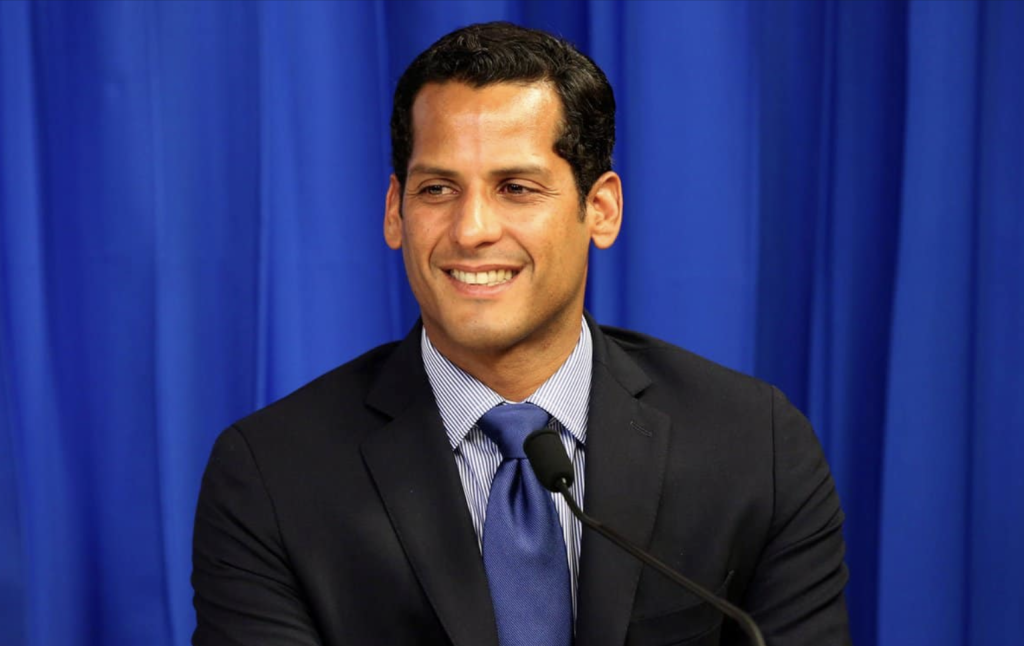
The Dominican Republic is a signatory of the World Anti-Doping Code. A former deputy Minister of Sports, Marcos Diaz was re-elected in October 2021 as chair of the eighth session of the Conference of Parties (COP8) Bureau to the United Nations Educational, Scientific and Cultural Organization (UNESCO) International Convention against Doping in Sport at the gathering in Paris. Diaz is a former presidential candidate for the World Anti-Doping Agency (WADA) and had chaired the seventh session of the Conference of Parties Bureau, running from 2020 to 2021.
But he has not been able to make inroads into stopping the negative effects of a widespread practice of use of toxic performance-enhancing subjects in the world of baseball training in the Dominican Republic.
Now, after Diario Libre once again released findings of an investigative report into the usage of steroids and other performance-enhancing substances by young baseball prospects, Diaz tells how things are and why in an interview with Diario Libre: “The state has been irresponsible in regulating the business,” he stated. He was referring to the billion-dollar baseball training system operating in the Dominican Republic to produce the talents for Major League Baseball.
Marcos Diaz told Diario Libre that the root of the problem is that baseball in the Dominican Republic lacks doping control unlike sports organized in sports federations that are subject to international Olympic system anti-doping controls.
In the interview, he said the situation is “most similar to human trafficking.”
Diario Libre reports that the long-standing issue of steroids in Dominican baseball remains without significant variation in the Dominican Republic.
The newspaper first published a series of reports in 2019 (Dirty Play – Jugada Sucia) written by journalists Tania Molina and Mariela Mejía on the doping issue and its effects on minors and players in general. The public health or sports authorities did not take any corrective actions.
Diario Libre reporter Nathanael Pérez Neró reported on 28 April 2023 on the alarming pattern of acute renal failure in adolescents related to the use of steroids.
“The use of doping substance in baseball transcends the sports and is a public health problem,” says the president of the UNESCO international convention against doping in sport, Marcos Diaz.
Diaz explains that sports organized in federations are somewhat more protected given the Dominican Republic is a signatory to the World Anti-Doping Code and is therefore regulated by the World Anti-Doping agency. The local counterpart is the National Anti-Doping Agency of the Dominican Republic.
“In a nutshell, everything that is federated sport has a control and oversight structure,” he said.
“However, professional baseball and the structure binding professional sports is not a signatory of the code, therefore, those supervisory and regular bodies as the National Anti-Doping Agency, do not have in their spectrum the competence to regulate professional sports,” he adds.
Under this situation, he maintains that the controls are the responsibility of governmental entities.
Diaz told Diario Libre now says that historically there has been an irresponsibility on the part of the governmental entities in demanding controls for baseball.
He explained that doping tests are carried out regularly to athletes practicing sports organized in federations. He says this is unlike what happens in non-federated professional sports, Major League Baseball, and any entity linked to professional baseball, including the Dominican Professional Baseball League (Lidom), the baseball academies, the farms, the trainers. “All lack a control system, therefore, the only regulatory capacity would fall on government entities,” concludes Diaz.
He went further and mentions that there are also no controls either over schooling, what happens to school dropouts, the business and the signing of untimely contracts that are not under supervision.
“In a forum in Washington, D.C., I defined (this situation) as the most similar to human trafficking,” he told Diario Libre. And he stresses: “The state has been irresponsible in regulating the business to guarantee that it does not have a negative social result, as we are seeing right now with doping.”
Investigative journalist Alicia Ortega dedicated a recent El Informe investigative report to the tragedy of teenagers now facing life-long sentences of damaged organs due to the usage of steroids and other toxic performance-enhancing substances recommended by their trainers.
Read more:
Diario Libre
Diario Libre
Diario Libre
Alicia Ortega
Inside the Games
10 May 2023

